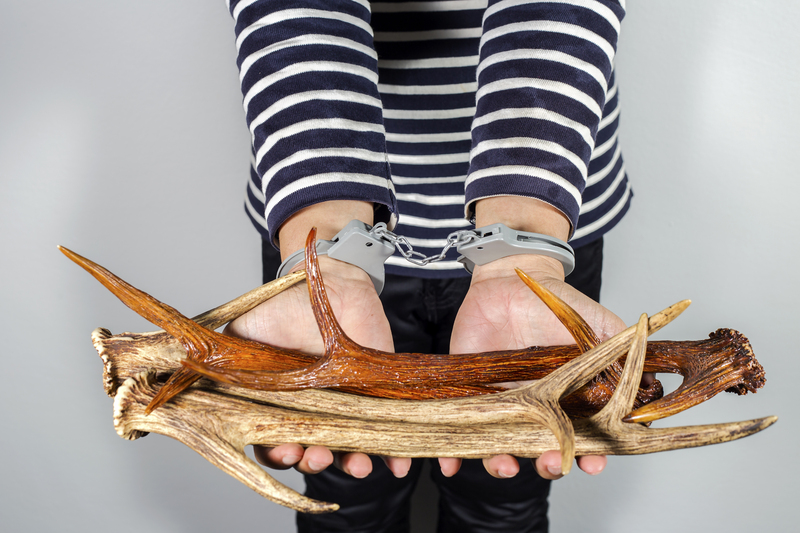Donating Versus Recycling: Options for Old Pots and Pans
What do you do with your old cookware when it's seen better days? While tossing outdated or damaged pots and pans in the trash is common, it's certainly not the most environmentally friendly or socially responsible way to handle unwanted kitchenware. Whether you're upgrading your kitchen or simply decluttering, exploring the best ways to get rid of old pots and pans is essential. Should you donate or recycle? Let's dive into your best options for keeping cookware out of landfills, while potentially helping others or preserving valuable materials.

Understanding the Environmental Impact of Cookware Disposal
Each year, millions of cookware items are disposed of, resulting in a significant environmental footprint. Traditional pots and pans--often made from metals like aluminum, stainless steel, copper, or with nonstick coatings--can take centuries to degrade in a landfill. Recycling and donating cooked cookware presents much more sustainable solutions that support the environment and reduce waste.
- Landfills are overflowing: Non-recycled cookware contributes to pollution, landfill crowding, and the loss of valuable materials.
- Reusable items: Many pots and pans have plenty of life left in them and can be reused, helping others and minimizing waste.
- Metal resources: Metals in cookware can be recovered, reducing the need for new mining and preserving natural resources.
Should You Donate or Recycle Old Pots and Pans?
The debate between donating cookware versus recycling it hinges on the condition of the items and your local options. Let's explore both paths to help you decide which is best for your old kitchenware.
When Is Donating Old Cookware the Best Choice?
Donating is ideal when your used pots and pans are still in good, functional shape. Donation extends the product's life and directly helps individuals or organizations in need. Here's why you should consider this option:
- The cookware is intact--no warping, excessive chipping, or major scratches.
- Handles and lids are secure and usable.
- Nonstick surfaces are not peeling or damaged (peeling can be a safety hazard).
- The items are thoroughly cleaned and free of burnt-on residue.
Who accepts cookware donations? Many charities and local organizations welcome gently-used kitchenware. Some popular donation options include:
- Thrift stores: Goodwill, Salvation Army, and Habitat for Humanity Restores often take cookware donations.
- Homeless shelters: Many shelters appreciate kitchen items for communal or transitional housing.
- Community centers or churches: Outreach programs often supply kitchen items to families in need.
- Refugee or resettlement agencies: These organizations build starter kits for new arrivals.
Contact any organization first to confirm their needs and policies.
Tips for Donating Old Pots and Pans
- Scrub thoroughly--remove all food residue, stains, and oil.
- Check for safety--ensure handles, lids, and coatings are intact.
- Assemble sets if possible--it's easier for organizations to distribute full or matching sets.
- Package securely--use boxes or bags to keep everything together.
If your cookware is no longer functional or safe, donating is not the right choice. In those cases, recycling old pots and pans is the responsible next step.
When Should You Recycle Cookware?
Many old pots and pans are unsuitable for donation due to damage, worn-out coatings, or being outdated. Recycling helps recover the valuable metals and keeps waste out of landfills. Consider recycling if:
- Handles are broken or missing.
- Nonstick coating is peeling or worn, creating a health hazard.
- Cookware is significantly warped, dented, or rusted.
- Lids are cracked or missing.
What Types of Cookware Can You Recycle?
Most metal cookware can be recycled, including:
- Stainless steel pots and pans
- Aluminum cookware
- Copper-bottomed pans
- Cast iron skillets
Note: Some cookware items with plastic handles or glass lids may require separation of materials before recycling. Always remove non-metal parts when possible.
How to Recycle Old Pots and Pans
Follow these steps to recycle your retired cookware safely and responsibly:
- Contact your local recycling center: Not all municipal programs accept household cookware curbside. Check their guidelines first.
- Locate scrap metal dealers: Many scrap yards and recyclers accept pots, pans, and other kitchen metals--even if they aren't accepted in home recycling bins.
- Drop-off services: Some community clean-up days or events accept bulk metal items.
- Mail-in recycling programs: Services like TerraCycle offer convenient mail-in solutions for hard-to-recycle kitchenware and utensils.
Remove all non-metal parts--handles, knobs, silicone coatings, and lids made from glass or plastic. This helps streamline the recycling process.
Special Considerations: Nonstick and Ceramic Cookware
Nonstick pans with Teflon or ceramic coatings pose unique challenges when it comes to both recycling and donation. Here's what you need to know:
- Worn or flaking nonstick coatings can be dangerous; don't donate pans with this condition.
- Most recycling centers require that the coating is removed beforehand--a task usually undertaken by professional recyclers or scrap yards.
- Ceramic cookware, if entirely ceramic (not metal with a ceramic coating), generally cannot be recycled as scrap metal but may be accepted in certain construction or ceramics recycling programs.
Check with your local recycling center to clarify their policies regarding nonstick, ceramic, or enamel cookware.
Creative Ways to Repurpose Old Pots and Pans
Sometimes, neither donation nor recycling is immediately feasible. If you're feeling creative, consider upcycling your cookware. Here are a few ideas to give old pots and pans a second life:
- Planters for gardens or balconies: Use deep pots as unique containers for flowers, herbs, or succulents.
- Art projects: Turn a cast iron skillet into wall art or a quirky clock.
- Storage containers: Repurpose large pots for storing kitchen tools, craft supplies, or even keys and coins.
- Birdbaths or feeders: An upside-down lid or shallow pan can make an attractive addition to a backyard sanctuary.
Upcycling can add personal flair to your home and prevent useful materials from going to waste.
Old Cookware Disposal: What NOT to Do
Here's what you should avoid when getting rid of your old pots and pans:
- Do not throw metal pots and pans in the regular trash. This unnecessarily increases landfill waste and squanders resources.
- Do not burn or incinerate cookware--especially nonstick pans--which can release harmful chemicals.
- Avoid donating unsafe, broken, or damaged cookware as it may pose risks to users.
Responsible disposal helps protect both people and the environment.
Comparing Donating and Recycling Old Cookware: Pros and Cons
| Donating | Recycling |
|---|---|
|
|
|
|
Frequently Asked Questions: Donating and Recycling Cookware
Can I put pots and pans in the curbside recycling bin?
Generally, most curbside recycling programs do not accept cookware due to shape, size, and mixed materials. Opt for a local scrap metal facility or specialized recycler instead.
Can I donate nonstick cookware?
You can donate nonstick pans only if the coating is intact and the pan is clean and safe to use. If the coating is damaged, recycling is a better option.
Are there eco-friendly cookware donation or recycling programs?
Some organizations and specialty recyclers run eco-friendly programs specifically for kitchenware. Research local initiatives or national services like TerraCycle for green solutions.

Conclusion: Choose the Best Option for Your Old Pots and Pans
Deciding what to do with old cookware doesn't have to be a challenge. Whether you donate or recycle old pots and pans, you're making a responsible, sustainable choice that benefits others and the planet. Here's a quick recap:
- Donate if your items are in good, safe, and clean condition--helping someone in your community and giving your pots and pans a new life.
- Recycle if your cookware is worn out, broken, or unsafe--ensuring that valuable materials make their way back into the supply chain.
- Consider creative upcycling if you have time, space, and imagination!
By exploring both donation and recycling options for old pots and pans, you can declutter your kitchen with confidence--while keeping sustainability at the forefront. For more guidance on environmentally friendly household practices, contact your local waste management agency or recycling center today.
Bonus: Quick Checklist for Eco-Friendly Cookware Disposal
- Assess the condition--donate if safe, recycle if damaged.
- Clean thoroughly before donating or recycling.
- Research local options for both donation and recycling.
- Remove non-metal parts before recycling.
- Explore creative upcycling for unique DIY projects.
- Avoid landfills--make the eco-friendly choice every time!
Donating versus recycling your old pots and pans is more than just a decluttering decision--it's a chance to make a real difference for your community and the planet. Choose thoughtfully, and your old cookware will serve a new purpose well beyond your kitchen.